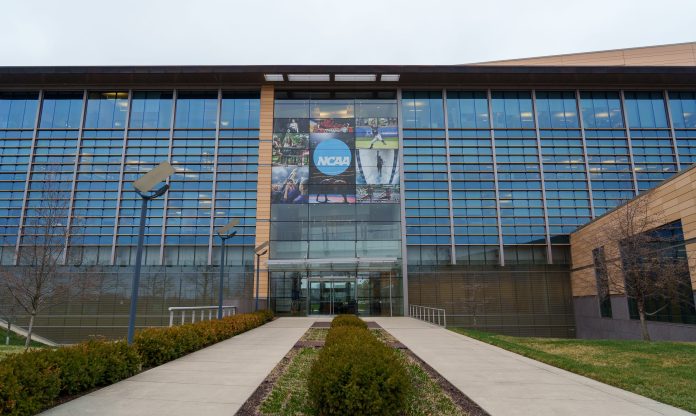NCAA president Charlie Baker’s proposal to potentially introduce a pay-for-play model in college athletics could be adopted either in whole or through separate pieces of legislation, according to documents obtained by CBS Sports. The NCAA will begin discussing these potential changes at its annual convention in Phoenix, with a focus on allowing schools to negotiate NIL deals with athletes and establishing annual trust funds of $30,000 per athlete. This discussion could also lead to the creation of a new subdivision for rule-making purposes.
The Division I Board of Directors has indicated that these elements can be discussed and acted on independently. This opens the possibility of further subdivision within major college athletics, even if the pay-for-play proposal is not fully adopted.
Charlie Baker’s proposal aims to alleviate pressure on the collegiate model, which has faced criticism due to restrictions on athlete compensation. While NCAA members have generally shown support for the president’s proposal, they remain cautious about its implementation.
Some FBS schools are concerned about being placed in a separate division, which could have different rules regarding scholarship commitments, roster sizes, recruitment, transfers, and NIL. For example, in a new subdivision, football scholarship limits could potentially be raised from 85 to 95.
The timeline for consideration of these proposals is as follows:
– April 17-18: The NCAA Council will discuss the development of concepts.
– April 22: The board will review preliminary recommendations on the bifurcation of NIL/trust fund elements.
– June 25-26: The council will finalize recommendations on NIL/trust fund and begin discussing a new subdivision.
– August 6: The board will act on the council’s final recommendations on NIL/trust fund, potentially before the next football season.
While the full implementation of Baker’s proposal may take time, it will play a significant role in shaping the future of college athletics. The discussions surrounding these changes could also impact the NCAA’s efforts to establish a federal law limiting NIL. The NCAA currently faces various lawsuits related to athlete compensation and an ongoing administrative process with the National Labor Relations Board, potentially leading to athlete unionization at certain schools. The outcomes of these discussions and reactions from stakeholders will shed light on the direction of college athletics.
Mit Winter, a sports law attorney, emphasized that these conversations will reveal whether the proposal has a future and how it may affect the NCAA’s approach to athlete compensation and regulation.
